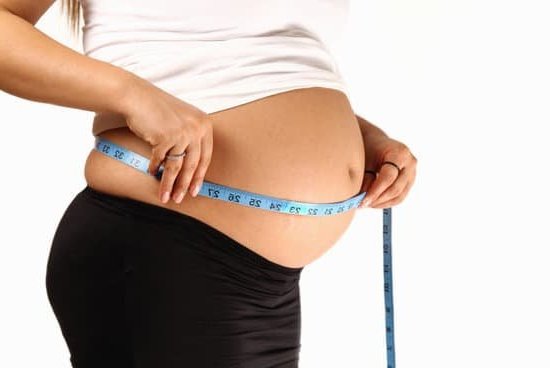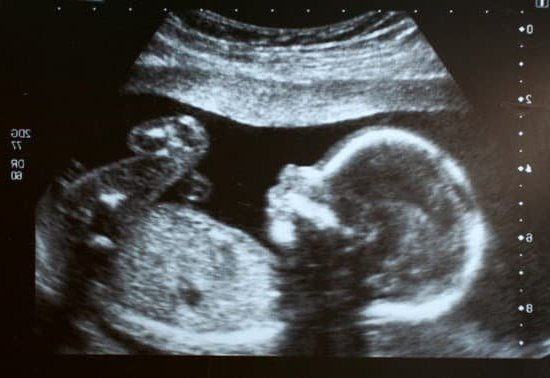Pregnancy is a transformative journey that requires careful attention to nutrition and overall health. Feeding the bump nutrition and recipes for pregnancy play a crucial role in supporting the well-being of both the mother and developing baby. The foods consumed during this time can have a direct impact on the pregnancy experience, from influencing fetal development to shaping the mother’s own physical and emotional well-being.
Nutrition during pregnancy is not only about eating for two; it’s about providing essential nutrients that support the growth and development of the baby while also nourishing the mother’s body. The right balance of vitamins, minerals, protein, carbohydrates, and healthy fats can contribute to a healthy pregnancy outcome, including reducing the risk of certain birth defects and complications such as preterm birth.
In this article, we will delve into the critical role of nutrition during pregnancy, outlining specific nutrient needs, exploring which foods to avoid, offering nutritious recipes specially designed for pregnant women, providing meal planning tips, discussing hydration needs, exploring mindful eating practices, and addressing special considerations for pregnant women following vegetarian or vegan diets.
Whether you’re an expectant mother yourself or seeking information to support someone else’s journey to motherhood, understanding the importance of nutrition during pregnancy is key to promoting a healthy start for both mom and baby.
Nutrient Needs During Pregnancy
Pregnancy places increased demands on a woman’s body to support the growth and development of her baby, making proper nutrition during this time crucial. Several key nutrients are essential for a healthy pregnancy, including folic acid, iron, calcium, and omega-3 fatty acids. These nutrients play vital roles in supporting the overall health of the mother and the proper growth of the developing baby.
Folic Acid
Folic acid is an important B vitamin that plays a crucial role in preventing neural tube defects in the developing baby. Foods rich in folic acid include leafy green vegetables, citrus fruits, beans, and fortified grains. Additionally, many healthcare providers recommend taking a folic acid supplement during pregnancy to ensure adequate intake.
Iron
Iron is necessary to make hemoglobin, the protein in red blood cells that carries oxygen to tissues throughout the body. During pregnancy, a woman’s blood volume increases significantly to support the placenta and growing fetus, making iron an essential nutrient. Good dietary sources of iron include lean meats, poultry, fish, legumes, and iron-fortified cereals.
Calcium
Calcium is vital for bone health for both the mother and developing baby during pregnancy. Pregnant women should aim to consume around 1,000 milligrams of calcium per day through sources such as dairy products (milk, yogurt), fortified plant milks (almond milk, soy milk), tofu made with calcium sulfate, and leafy green vegetables like spinach and kale.
Omega-3 Fatty Acids
Omega-3 fatty acids are essential for brain and eye development in the growing baby. Good sources of omega-3 fatty acids include fatty fish such as salmon and trout, as well as chia seeds, flaxseeds/walnuts or walnuts oil.
Ensuring adequate intake of these essential nutrients is critical for a healthy pregnancy – from supporting fetal development to promoting optimal maternal health throughout this transformative time.
Foods to Avoid During Pregnancy
During pregnancy, it becomes especially important to be mindful of the foods you consume, as certain foods can pose a risk to both the mother and the baby. It is crucial to prioritize your health and well-being during this time, and that includes being aware of which foods to avoid.
Some foods can harbor bacteria, toxins, or other harmful substances that could lead to complications in pregnancy. By understanding the reasons behind these food restrictions, you can make informed decisions for the health of both you and your baby.
One of the primary concerns during pregnancy is consuming foods that may contain harmful bacteria such as Listeria or Salmonella. These bacteria can lead to food poisoning, which can have severe consequences for pregnant women and their developing babies. Due to this risk, it is recommended to avoid certain types of cheeses, deli meats, raw seafood, and undercooked eggs during pregnancy.
Another area of concern is the potential exposure to high levels of mercury from certain fish. While fish is an excellent source of omega-3 fatty acids and other essential nutrients for pregnancy, some types of fish tend to have elevated mercury levels due to environmental contamination. It is best for pregnant women to limit their intake of high-mercury fish such as shark, swordfish, king mackerel, and tilefish.
In addition to bacterial contamination and mercury exposure, there are also specific foods that need avoiding due to potential negative effects on fetal development. For example there are caffeinated beverages including coffee and tea as they have been linked with an increased risk of miscarriage when consumed in large amounts during pregnancy. Furthermore unpasteurized milk and juice products contain harmful bacteria are should also be avoided by pregnant women.
| Foods to Avoid During Pregnancy | Reasons |
|---|---|
| High-Mercury Fish | Elevated levels of mercury pose a risk for fetal development |
| Caffeinated Beverages | Linked with increased risk of miscarriage when consumed in large amounts |
| Unpasteurized Milk & Juice Products | Potential exposure to harmful bacteria |
Healthy Pregnancy Recipes
During pregnancy, it’s essential to prioritize a nutritious and well-balanced diet to support the health of both the mother and the developing baby. One way to do this is by incorporating specially designed recipes that are tailored to meet the unique nutritional needs of pregnancy. These recipes not only provide important nutrients but also offer delicious and satisfying meal options for expectant mothers.
Breakfast Recipes
Starting the day with a nutritious breakfast is crucial during pregnancy. Consider trying a berry and yogurt parfait made with Greek yogurt, fresh berries, and a sprinkle of granola for added crunch and fiber. Another option is a spinach and feta omelet, which provides an excellent source of protein, iron, and folate.
Lunch and Dinner Ideas
For lunch or dinner, opt for grilled salmon with roasted vegetables. Salmon is rich in omega-3 fatty acids, which are crucial for fetal brain development, while the colorful array of roasted vegetables provides an assortment of essential vitamins and minerals. Additionally, a quinoa and black bean bowl offers a vegetarian-friendly option packed with protein, fiber, and folate.
Snacks and Smoothies
Healthy snacking is key during pregnancy to keep energy levels up between meals. Consider munching on a handful of mixed nuts or enjoying carrot sticks with hummus as nutritious snack options. For something more refreshing, whip up a fruit smoothie using blended berries, banana, Greek yogurt, and a splash of almond milk for added calcium.
Feeding the bump nutrition and recipes for pregnancy go hand in hand when it comes to supporting maternal health and the development of the baby. By following these recipe ideas specifically created for pregnant women, expectant mothers can ensure they’re getting the essential nutrients needed during this special time in their lives.
Meal Planning for Pregnancy
When it comes to pregnancy, good nutrition is essential for the health of both the mother and the developing baby. Meeting the unique nutritional needs during pregnancy can be achieved through mindful meal planning. Here are some tips and advice on how to plan balanced meals that support a healthy pregnancy:
- Start the day right with a nutritious breakfast: A balanced breakfast that includes whole grains, protein, and healthy fats can provide sustained energy throughout the morning. Try options like overnight oats with Greek yogurt and fruit, or a vegetable omelet with whole grain toast.
- Opt for nutrient-dense lunches: Aim for a lunch that includes lean protein, plenty of vegetables, and whole grains. Consider options such as quinoa salad with chickpeas and mixed greens, or a turkey and avocado wrap with a side of roasted sweet potatoes.
- Plan hearty and wholesome dinners: For dinner, focus on incorporating a variety of nutrients by including lean protein sources like fish or tofu, along with plenty of colorful vegetables and whole grains. Examples include grilled salmon with roasted vegetables and quinoa, or stir-fried tofu with broccoli and brown rice.
In addition to main meals, snacks are an important part of meal planning during pregnancy. Incorporating nutrient-rich snacks between meals can help maintain energy levels and prevent excessive hunger. Consider options like Greek yogurt with berries, trail mix with nuts and dried fruits, or vegetable sticks with hummus.
Overall, meal planning for pregnancy should prioritize nutrient-dense foods that provide essential vitamins and minerals necessary for the health of both mother and baby. By incorporating a variety of food groups into each meal and snack, expecting mothers can ensure they are meeting their unique nutritional needs during this vital time.
Remember also that “Feeding the Bump Nutrition” offers an abudance in recipes for pregnant women which could be very beneficial.
Hydration and Pregnancy
Pregnancy is a time when proper hydration is crucial for the health of both the mother and the developing baby. Staying hydrated can help prevent complications such as urinary tract infections and preterm labor, while also supporting the body’s ability to carry essential nutrients to the baby. Dehydration during pregnancy can lead to dizziness, headaches, constipation, and even potentially impair fetal growth and development.
The Importance of Hydration
During pregnancy, a woman’s blood volume increases significantly to support the placenta and growing baby. This means that pregnant women have an increased need for fluids in order to maintain healthy blood pressure and prevent dehydration. Proper hydration is also important for regulating body temperature, aiding digestion, and maintaining amniotic fluid levels.
Tips for Staying Hydrated
Pregnant women should aim to drink at least 8-10 cups (64-80 ounces) of water each day, but individual needs may vary based on factors such as activity level, climate, and overall health. In addition to water, hydrating beverages such as herbal teas, coconut water, and diluted fruit juices can contribute to fluid intake.
Eating hydrating foods like fruits and vegetables can also support overall hydration levels. It’s important for pregnant women to pay attention to their thirst cues and drink fluids throughout the day.
Creative Ideas for Flavored Water and Herbal Teas
For pregnant women who struggle with plain water or are looking for ways to stay hydrated while avoiding caffeine or excess sugar, flavored water and herbal teas can be a great option. Infusing water with slices of citrus fruits, berries, or herbs like mint or basil can add natural flavor without extra calories or sugar. Herbal teas such as ginger tea or chamomile tea are popular choices among pregnant women due to their soothing properties without caffeine content.
Overall, staying well-hydrated during pregnancy is essential for supporting overall health and well-being throughout this transformative time. By paying attention to their individual needs and incorporating creative ideas for flavored water and herbal teas into their daily routine, expecting mothers can ensure they are meeting their hydration needs while enjoying delicious options that support both themselves and their growing babies.
Mindful Eating During Pregnancy
During pregnancy, it’s essential to pay close attention to the body’s hunger and fullness cues. Mindful eating is a practice that can help pregnant women stay connected to their bodies and make nourishing food choices for themselves and their growing baby. By practicing mindful eating, expectant mothers can develop a deeper awareness of their body’s needs and cultivate a positive relationship with food during this important time.
One of the key benefits of mindful eating during pregnancy is the ability to tune in to physical hunger and fullness cues. This can help prevent overeating, which may contribute to excessive weight gain during pregnancy. Mindful eating also encourages pregnant women to savor each bite and truly enjoy their meals, leading to a more satisfying dining experience overall.
Incorporating mindfulness into mealtimes can be as simple as taking a few deep breaths before eating, paying attention to the colors, textures, and flavors of food, and chewing slowly. Pregnant women can also benefit from avoiding distractions while eating, such as watching TV or using electronic devices. These practices can help foster a sense of connection with the body’s natural signals for hunger and fullness.
Research has shown that mindful eating practices may lead to healthier dietary choices overall and improved management of cravings during pregnancy. By staying present and attentive while feeding the bump with nutrition-packed recipes for pregnancy, expectant mothers can enhance their overall well-being while nurturing a healthy gestation period.
| Mindful Eating Benefits During Pregnancy | Description |
|---|---|
| Improved Weight Management | Mindful eating helps prevent overeating and excessive weight gain during pregnancy. |
| Enhanced Satisfaction | Pregnant women are encouraged to savor each bite and fully enjoy their meals for a more fulfilling dining experience. |
| Healthier Dietary Choices | Mindful eating practices may lead to improved meal selections throughout pregnancy. |
Special Considerations for Pregnant Vegetarians or Vegans
In conclusion, nutrition plays a crucial role in the health and well-being of both the mother and the developing baby during pregnancy. It is essential to ensure that pregnant women are consuming adequate amounts of key nutrients such as folic acid, iron, calcium, and omega-3 fatty acids to support the healthy growth and development of the fetus. Avoiding certain foods that pose a risk to the mother and baby is also important for a safe and healthy pregnancy.
For pregnant women following a vegetarian or vegan diet, there are unique nutritional challenges that need to be addressed. Ensuring sufficient intake of protein, iron, calcium, vitamin D, and vitamin B12 can be more challenging when relying solely on plant-based foods. However, with careful planning and by incorporating a variety of nutrient-dense plant-based foods into their diet, pregnant vegetarians or vegans can meet their specific nutritional needs.
To support all pregnant women in their nutritional journey, it’s important to provide access to a wide range of healthy pregnancy recipes specially designed for their needs. These recipes can offer delicious options for meals, snacks, and smoothies that provide essential nutrients while also promoting enjoyment of food during this special time.
By offering tips for meal planning, hydration, mindful eating, and addressing specialized dietary considerations like vegetarian or vegan diets during pregnancy, mothers-to-be can feel confident in making informed choices about feeding themselves and their growing bump.

Welcome to my fertility blog. This is a space where I will be sharing my experiences as I navigate through the world of fertility treatments, as well as provide information and resources about fertility and pregnancy.





